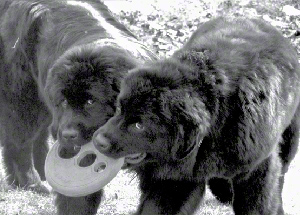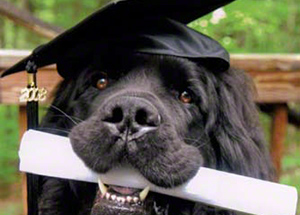Many puppy owners find themselves asking this question, and the answer is a simple one: it depends. (We know; that’s not the answer you want to hear when you’ve returned from work or running errands to find your dog has gnawed some woodwork, or made a shredded mess of your favorite pair of shoes.) “What does it depend on?” might be the tougher question to answer, as there’s no single variable. Some breeds chew more than others – retrievers are known for this – and some individual dogs chew more than others. In addition to genetic factors, there are environmental and training considerations to factor in. Is your dog left alone for long periods? Boredom may lead to chewing. Does your dog experience separation anxiety? That could lead to prolonged chewing. Did you consistently and positively redirect your puppy away from chewing on forbidden objects by offering appropriate toys? If not, that could lead to chewing. As noted in the earlier “Teething” article, it’s crucial that we let our puppies know what is OK to chew on, and what is not, and that we are consistent and firm in teaching that lesson.
Newfoundlands are not, in general, known to be a “chewing” breed, but many a Newf owner could tell stories that might indicate otherwise. If your Newf is still a heavy chewer much past the age of 18 - 24 months, you may have an “exception to the rule” Newf on your hands, but even then, there’s no need to worry. Some dogs outgrow their chewing habit a bit more slowly than others, but even if not, there is much that can be done to keep your valuables from being damaged.
It’s a truism in the world of dog training that a tired dog is a good dog, so providing as much exercise and stimulation as you can for your Newf is a great way to minimize all sorts of canine mischief, including chewing, so daily walks, play time, obedience or draft or water training – all of these will help your Newf chew less and enjoy life more. Of course, keeping valuable items out of your dog’s reach is always important, and providing appropriate chew toys, and making sure your dog understands which is which, will go a long way toward protecting those items that can’t be hidden away. Dogs engage the world through their mouths in ways that we humans may not fully appreciate, but with a little time and patience and love, it’s a “dog thing” that can be very effectively managed.

